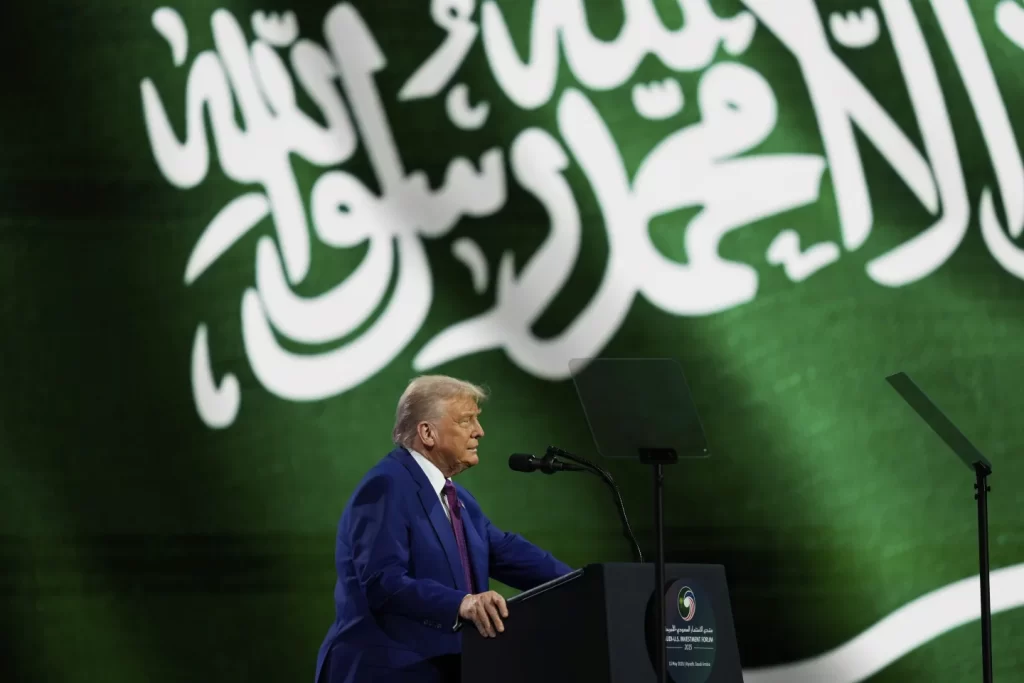
WASHINGTON — Saudi royalty and American billionaires were in the front row for a speech in Riyadh where President Donald Trump condemned what he called past U.S. interference in the wealthy Gulf states.
Gone were the days when American officials would fly to the Middle East to give “you lectures on how to live, and how to govern your own affairs,” Trump said at a Saudi investment forum this week.
No one in the audience sat closer, or listened more intently, than Saudi Arabia’s crown prince, Mohammed bin Salman.
Ordinary Arabs listened, too, including Saudi journalists, rights advocates, businesspeople, writers and others who had fled the kingdom. Their fear: Trump’s words underlined a message that the United States was pulling back from its longtime role as an imperfect, sporadic but powerful advocate for human rights around the world.
“It was painful to see,” said Abdullah Alaoudh, whose 68-year-old father, a Saudi cleric with a wide following, was among hundreds of royals, civil society figures, rights advocates and others jailed by Prince Mohammed in the first years of his rise to de facto ruler.
Saudi Arabia has since freed many of those people in what groups say is the crown prince’s improved human rights record following past international criticism and isolation. But Abdullah’s father, Salman Alaoudh, is among the many still behind bars.
Trump was speaking directly to the prince — “the person who tortured my father, who has banned my family” from leaving the kingdom, said Abdullah, who advocates for detained and imprisoned people in Saudi Arabia from the United States.
The Saudi embassy did not immediately respond to messages seeking comment. A White House spokeswoman, Anna Kelly, said Trump’s speech “celebrated the ever-growing partnership between the United States and Saudi Arabia” and a Middle East working toward peace. Kelly did not respond to a question about whether the president had raised human rights issues with Gulf leaders.



